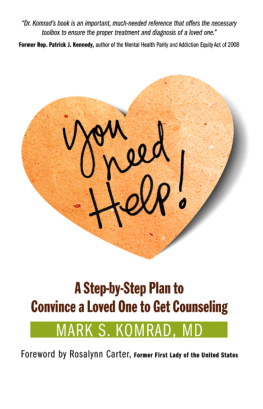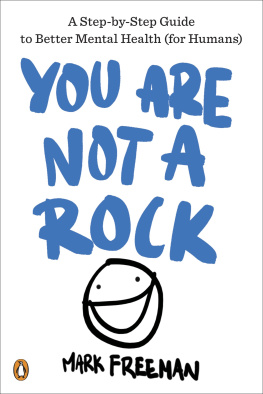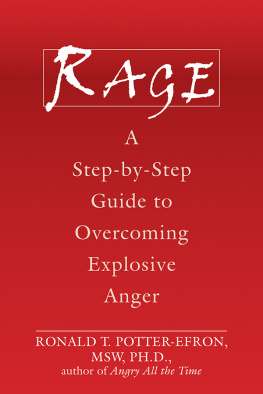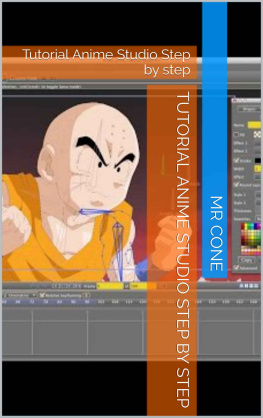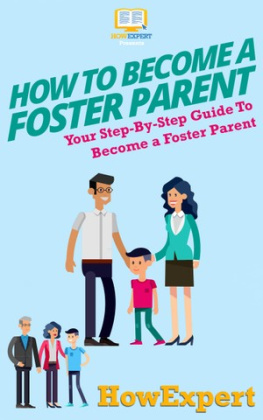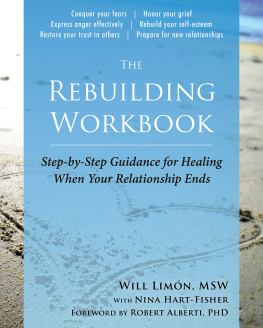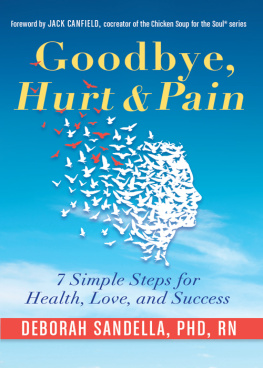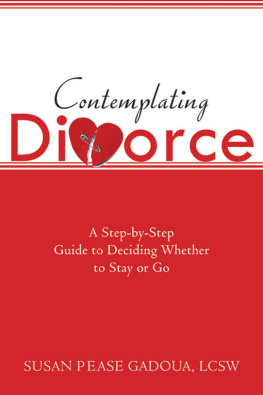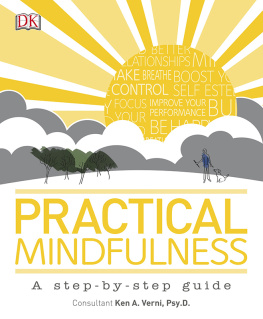Dr. Komrads book is an important, much-needed reference that offers the necessary toolbox to ensure the proper treatment and diagnosis of a loved one.
Patrick J. Kennedy, former member of Congress,
author of the Mental Health Parity and Addiction Equity Act,
and cofounder of One Mind for Research
My family did a fantastic job with handling the challenge of being related to me, but I think it would have made their burden much lighter if theyd had a book like this.
Carrie Fisher, author and actress
This is an authoritative and smart guide for the perplexed in need of care, written by an experienced clinician and teacher.
Steven S. Sharfstein, M.D.,
clinical professor of psychiatry, University of Maryland
How do I get my child/spouse/friend to see someone? This is the most common question psychiatrists hear from families. I recommend this book to all of you in this predicament.
J. Raymond DePaulo, Jr., M.D.,
Henry Phipps professor and director, Department of Psychiatry
and Behavioral Sciences, Johns Hopkins Hospital

A Step-by-Step Plan to
Convince a Loved One to Get Counseling
MARK S. KOMRAD, M.D.

Hazelden Publishing
Center City, Minnesota 55012
800-328-9000
hazelden.org/bookstore
2012 by Hazelden Foundation
All rights reserved. Published 2012
Produced in the United States of America
No part of this electronic publication, or its printed work, may be reproduced in any form or by any means without the written permission of the publisher. Failure to comply with these terms may expose you to legal action and damages for copyright infringement.
Library of Congress Cataloging-in-Publication Data
Komrad, Mark S., 1957
You need help! : a step-by-step plan to convince a loved one to get counseling / Mark S. Komrad.
p. cm.
Includes bibliographical references.
ISBN 978-1-61649-148-2 (softcover) ISBN 978-1-61649-455-1 (ebook)
1. Mental health counseling. 2. Persuasion (Psychology) 3. Mental illnessDiagnosis. I. Title.
RC466.K66 2012
616.89dc23
2012012917
Editors note
The names, details, and circumstances may have been changed to protect the privacy of those mentioned in this publication.
This publication is not intended as a substitute for the advice of health care professionals.
Quote from Bruce Springsteen from The New York Times , 5/7/1995 1995 The New York Times . All rights reserved. Used by permission and protected by the Copyright Laws of the United States. The printing, copying, redistribution, or retransmission of this Content without express written permission is prohibited.
16 15 14 13 12 1 2 3 4 5 6
Cover design by Theresa Jaeger Gedig
For my patients, who taught me everything in this book,
and my familythe psychiatrists psychiatrist
I found [mental health treatment] to be one of the healthiest experiences of my life. I grew up in a working-class family where that was very frowned upon. So it was very, very difficult for me to ever get to a place where I said I needed some help. You know, I stumbled into some different, very dark times where I simply had no other idea of what to do. Its not necessarily for everybody maybe, but all I can say is, Ive lived a much fuller life. Ive accomplished things personally that felt simply impossible previously. Its a sign of strength, you know, to put your hand out and ask for help, whether its a friend or a professional or whatever.
Bruce Springsteen
Not everything that is faced can be changed, but nothing can be changed until it is faced.
James Baldwin
Foreword
Since I first began campaigning for my husband for political office, I have been interested and involved with people who have suffered from mental health problems as well as their families and the communities in which they live. Ive written books about how effective the treatment for these problems has become but how difficult access to that treatment can be. As the Presidents Commission on Mental Health informed my husband back in 1979, so many people who would benefit from it are not getting mental health care. For some, this is because of where they live; for others, its because of who they are. Reaching out for help, however, is sometimes the most difficult step. Often, people dont know how or when or even whether to seek help. It may be that othersfamily, friends, coworkersare the first to see that someone is troubled and could benefit from seeing a trained professional in order to understand the nature of the problem and how it can be addressed. Our children, the elderly, our incredibly stressed veterans, those whose lives have been crushed by economic setbacks or disaster, those raised in hardship, or those who have inherited mental illnessall need to have some way to get started, some assistance to reach out for help and begin their process of recovery.
If you are that family member or friend who first really grasps that someone may be in emotional trouble, this book can give you sound guidance about how to approach the individual. There are so many reasons why he or she may not believe or be aware that there is a problem, or perhaps doesnt want any kind of professional help, or simply may not know how or where to start.
The father of medicine, Hippocrates, wrote over 2,400 years ago: diagnosis is half the cure. Comprehending the problem is the first step in the journey to recovery. Modern psychiatric treatment starts with trying to determine that knowledge. Since I first got involved in mental health advocacy, much more has been learned about the brain and mind to further our understanding of how someones mental life becomes troubled and what to do about it. So, that first stepgetting to a professional who can begin to sort things out, do an evaluation, make a proper diagnosis, and get treatment started in the right directionis crucial.
Much can stand in the way of getting professional mental health treatment. Ive been working for years trying to improve access for people to get the help they need. At the most basic level, though, it starts with the troubled person in your life: the reason you have picked up this book. This person may be more or less agreeable to getting help, more or less aware that there is a problem. Sometimes all it takes is kind, supportive guidance. Sometimes it may take greater efforts at persuasion or mobilizing outside assistance.
Dr. Komrad has guided thousands of people (and those who care about them) in the process of taking the first step to getting a mental health evaluation and has spoken about it often on his radio show. His book will start you off with the simplest and more supportive approaches. If these dont work, he guides you toward stronger measures, as appropriate. Dr. Komrad points out the resources that are available within families, communities, and even in the courts.
We have come a long way in the understanding and treatment of mental disorders since I chaired the Presidents Commission on Mental Health in 1979. But we still have a way to go, and every effort is important. After all the policy discussions, legislation, and advocacy, it comes down to one person at a time starting down the path of evaluation, treatment, and recovery. Helping someone to get a proper assessment by meeting with a mental health professional is vital, even blessed work. I believe this book can help you do that work.
Rosalynn Carter,
former First Lady of the United States
Acknowledgments
Next page
